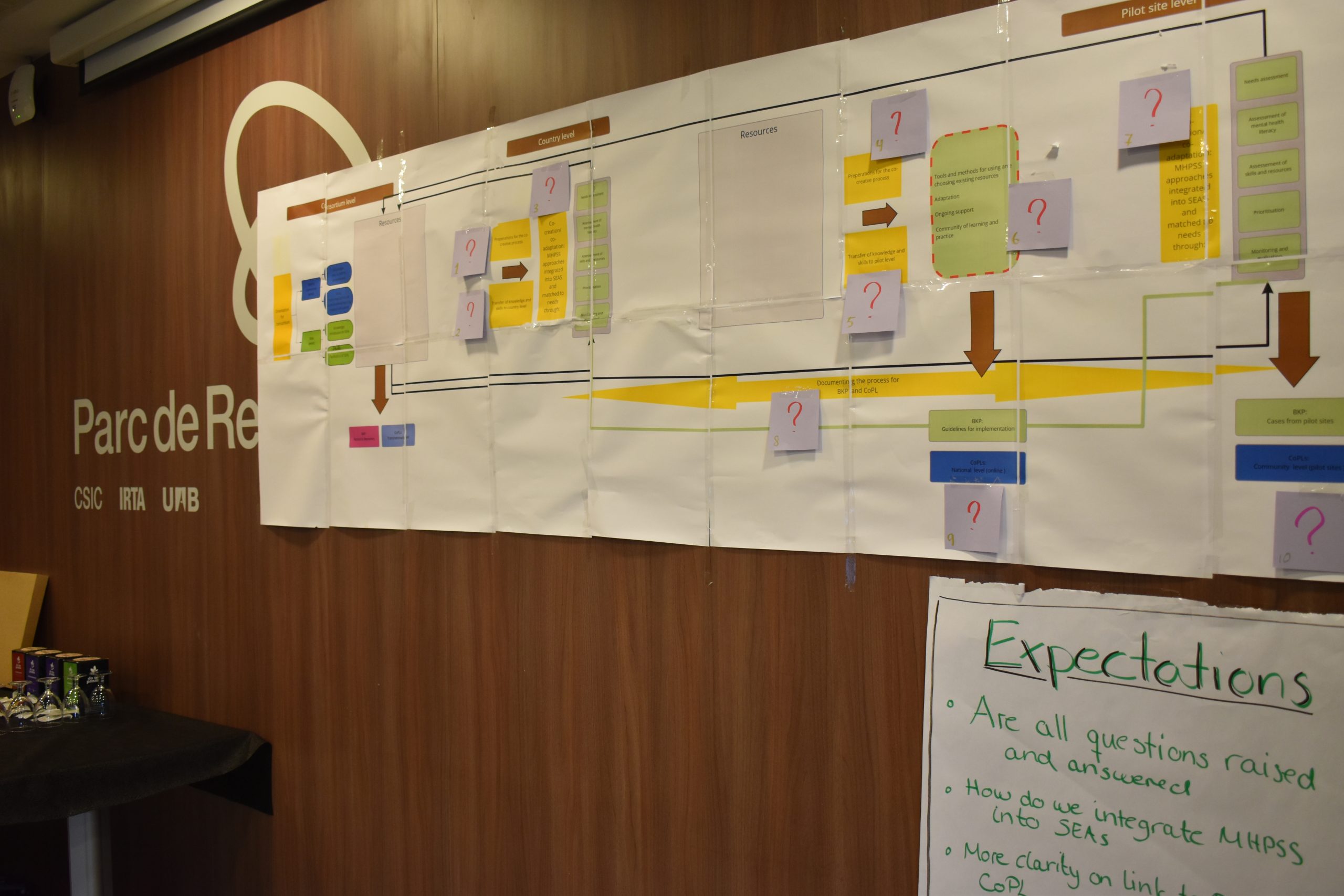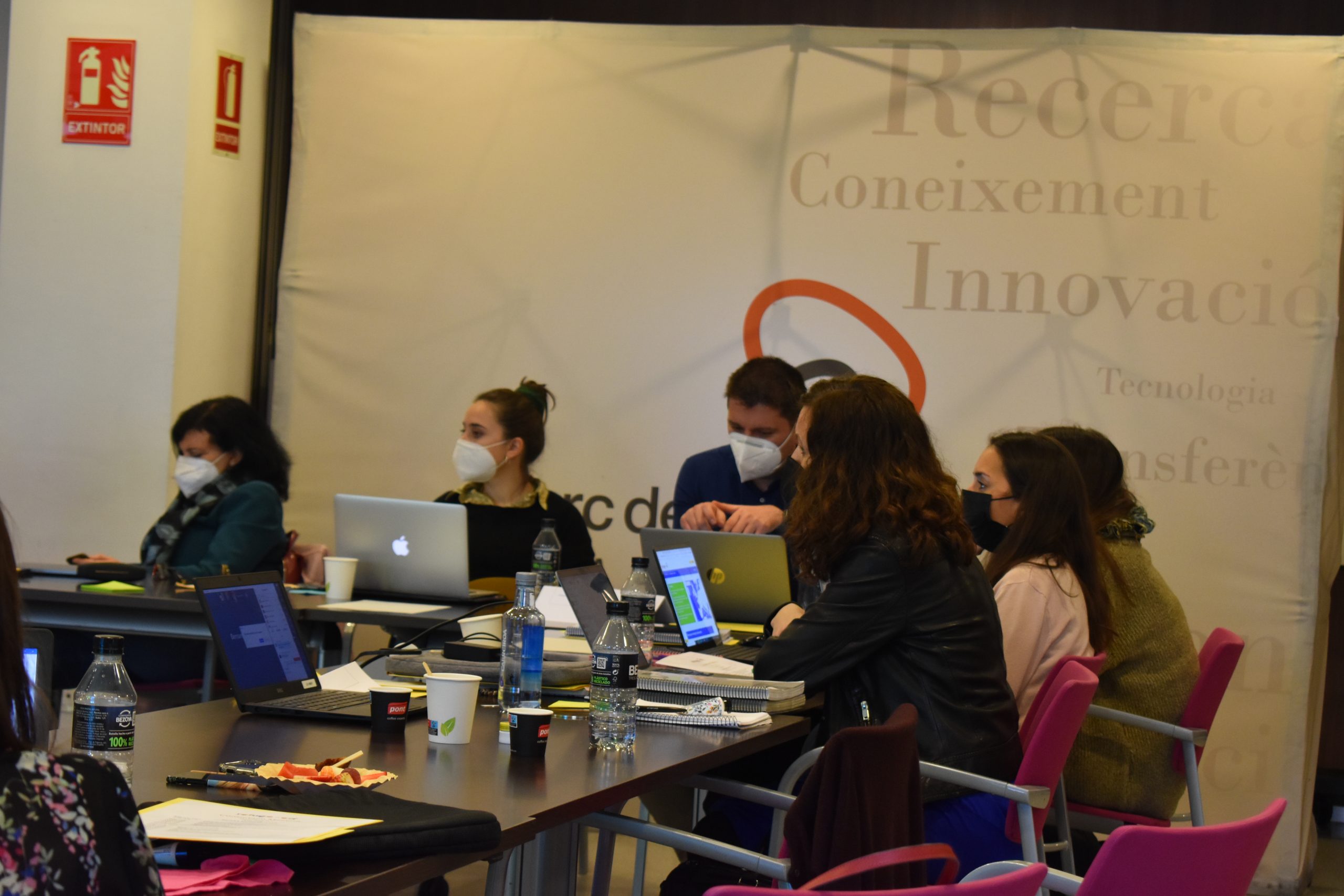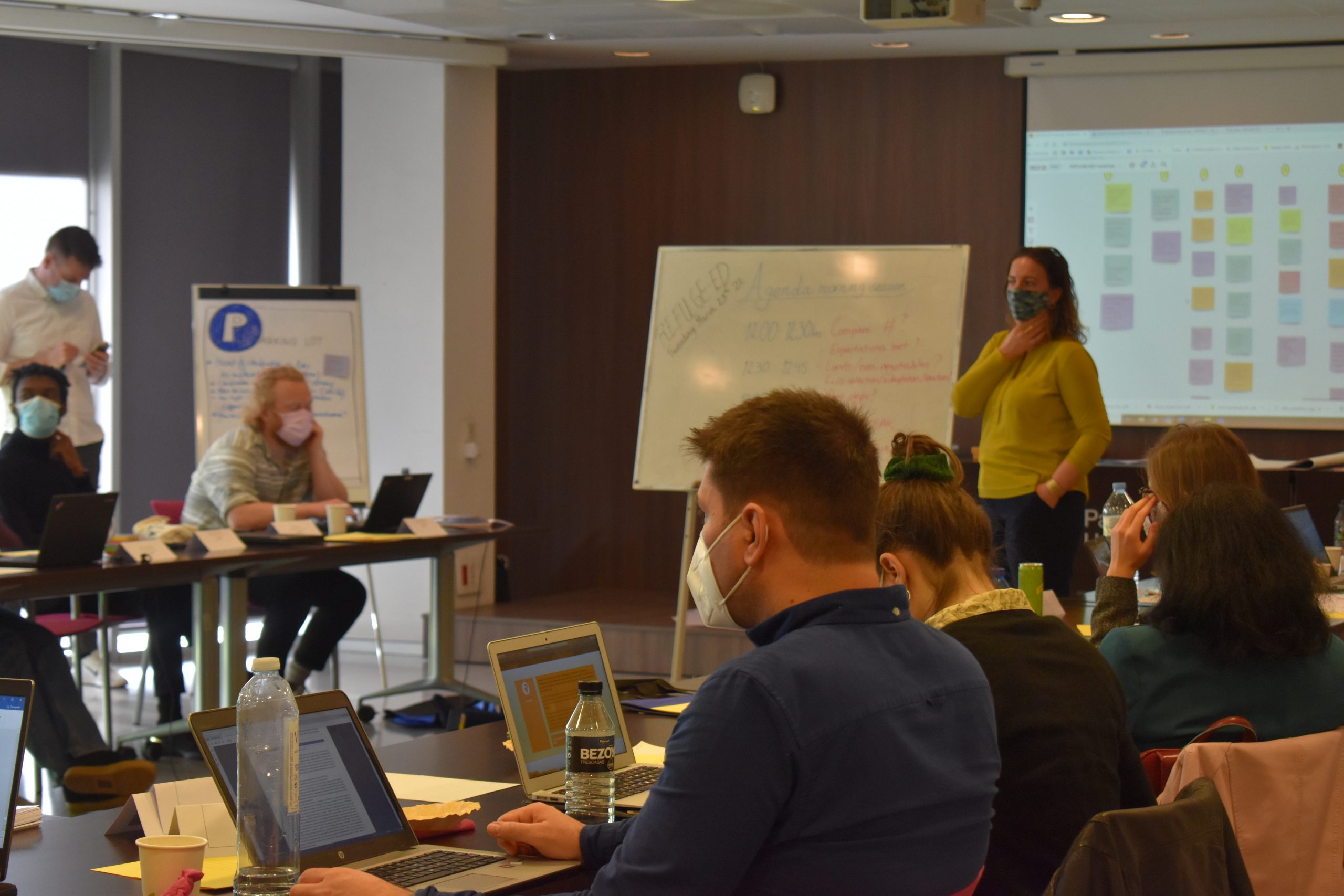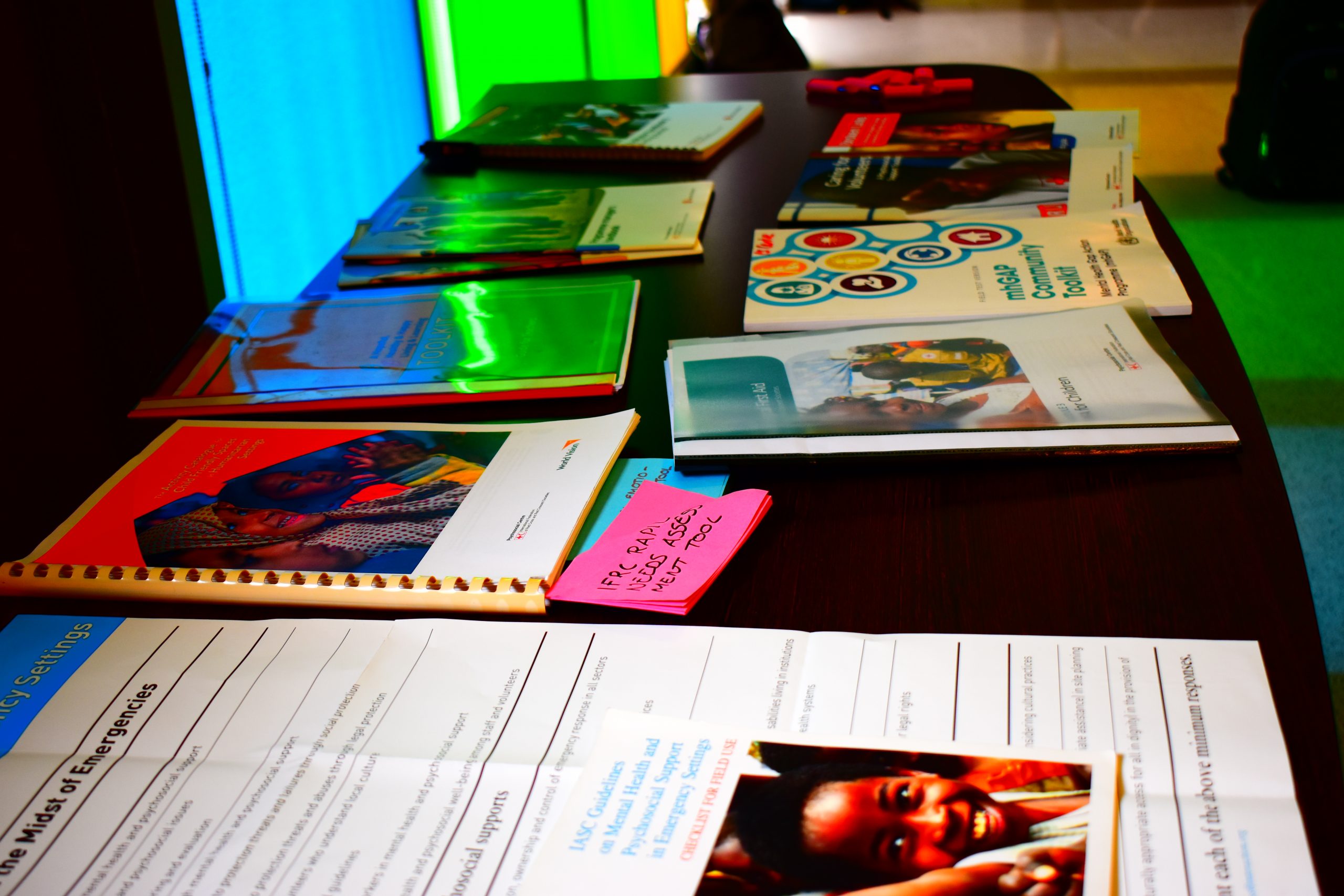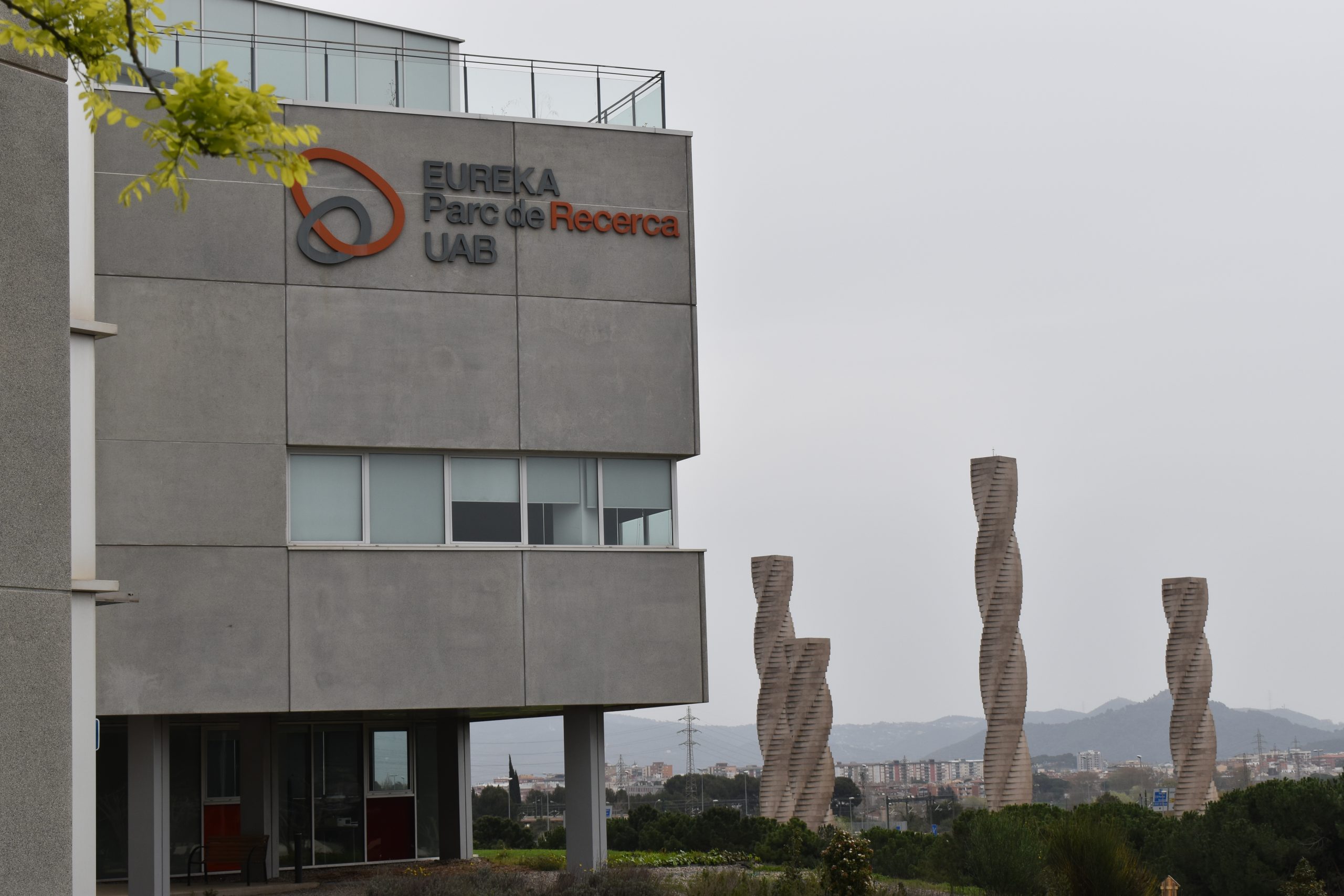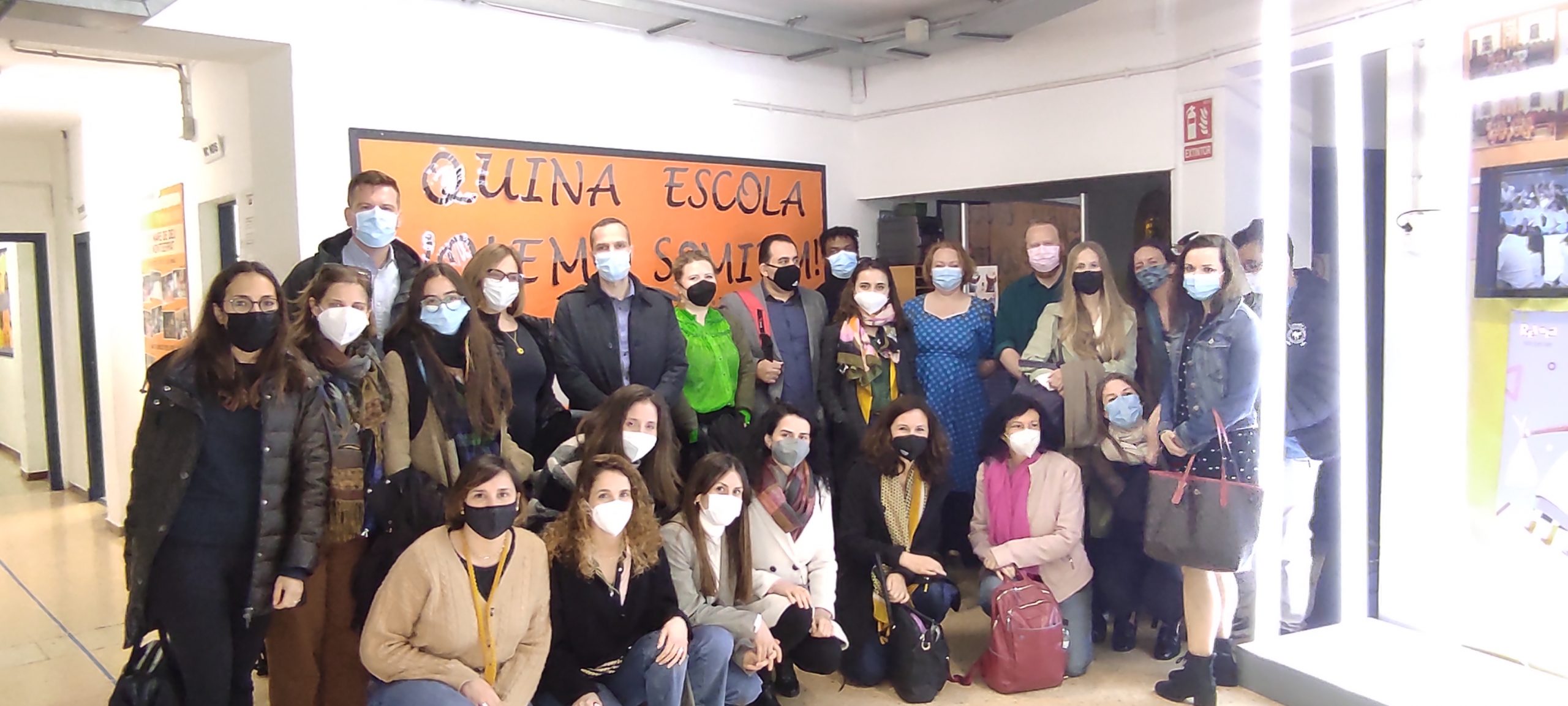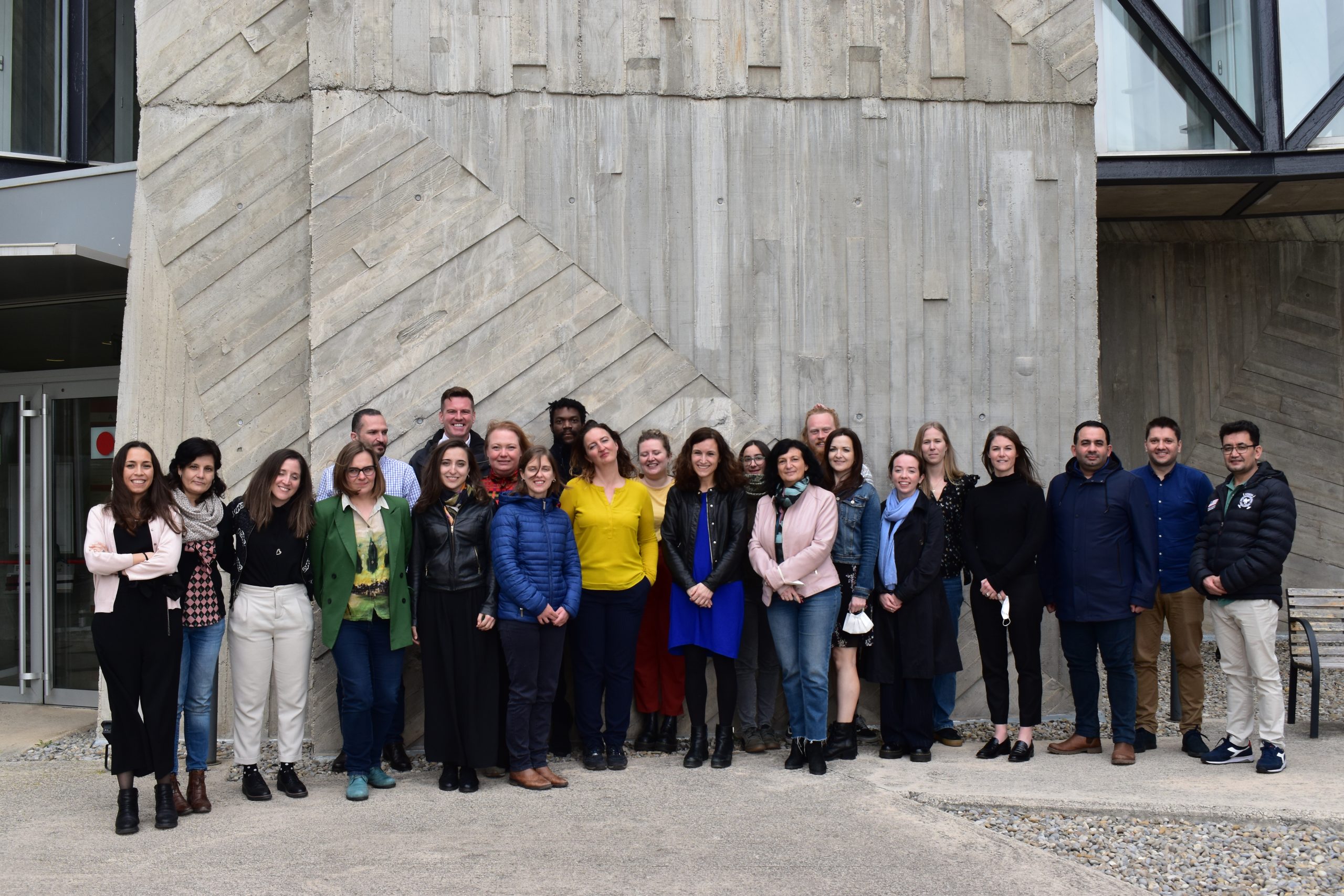Finally together
COVID-19 has done its best to make collaboration in the REFUGE-ED consortium difficult. In late March we finally managed come together physically for the first time since the project began. The Autonomous University of Barcelona hosted the meeting, and had made sure that the meeting was engaging, inspiring and brought us further in the project.
It was a group of people in high spirits that came together at the campus of the Autonomous University of Barcelona on a Monday morning in March. More than a year into this intense project, after spending hours and hours in online meetings and exchanging countless emails, the consortium finally get to meet each other in person.
The meeting started with a demonstration of what this project is really all about: Providing children from all backgrounds with a safe, inspiring learning environment in which they can learn, develop, feel safe and good and become members of their wider community and society. The Mare de Deu de Montserrat School in Terassa a little outside of Barcelona is an excelent example of such a learning environement. Or rather learning community – because the key to success here is the involvement of the entire community in the school. Here, school is not only for the kids, but also for their parents and volunteers in the community. The school pedagogy is focused on Successful Educational Actions, and the consortium was invited to watch a dialogic gathering in which 10-years old children were discussing the Oddyssey, meeting mothers (and a few younger siblings) of students who attended family education, saw a mathematics class in which community volunteers conducted interactive groups and saw the dialogic conflict prevention and resolution model in action.
Learning and looking forward
The following one and a half day of the meeting was spent discussing the state of the project, learning from eachother and mapping out the road ahead.
At the time of the meeting the co-creation with the pilot sites was ongoing across all sites, but at different stages in the process. REFUGE-ED will implement pilot actions in 46 sites in six different countries, and there is a great variety in the numbers of pilots in each country, the locations of the pilot sites, legal frameworks around working with and accessing the sites, types of sites etc. This diversity created fertile ground for good discussions about the challenges and opportunities, and also how to move forward in the best manner.
The ongoing theme of the meeting was how to move forward: How do we transfer knowledge between the consortium members and to and from the pilot sites? How does the evaluation and documentation tool, the SPICE cycle, work? And what is the best way of blending the succesful educational actions with the MHPSS approaches in a way that is meaningful and appropriate in all the different pilot settings – and how do we make sure that all this knowledge is captured and made available for use long after the project is over?
After two intense days not all questions were answered completely, but the consortium said goodbye with a good feeling of common understanding of the tasks and road ahead.

